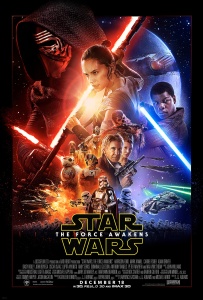Sometimes, the world really sucks. It’s beginning to feel like every time we start to heal and move on from one tragedy or disaster, another strikes. Last week I was dealing with flooding in our area, and the persistent threat of tornadoes, but all of that faded into the background with what happened in Orlando.
This is by no means a post rehashing the news, or remarking on the politics now surrounding it. I’m in dire need of a break from it all, just as I’m sure you all are, no matter your personal affiliations. It’s times like these that I really do marvel at the beauty of literature, music, and films to take one’s mind off of things. This is when I’m most in need of all guilty pleasures, no matter how small. Red wine and some cookie dough ice cream while watching Netflix? Yep, I’m there.
One of my personal favorite guilty pleasures is historical romance novels. For a bit of light reading full of lush clothing and descriptive language, it can be interesting enough to keep my attention and absorb me so that I forget the awfulness of the world around me. Plus, it has the benefit of being comfortingly predictable; as a reader, you know exactly where the story is heading. Love will triumph and the hero and heroine will ride off into the sunset together. It’s incredibly reassuring and serves its purpose wonderfully: escapism.
Everyone has their own form of escapism. Literature is a fantastic one, because you can honestly imagine yourself in the shoes of a heroine and lose yourself in a new world that you create in your mind. Geek culture is full of ways to indulge in escapism. Science fiction and fantasy novels can be brilliant, richly detailed escapism. The multitude of geek-central television shows we currently have, whether presently airing or available on Netflix (Firefly, anyone?) are a fantastic source of comfort right now. Plus with all of the great movies coming out this year, there has to be one or another that you can check out in the weeks to come.

Editor: There we go. Firefly, Good, and Evil, all in one image.
I’ve talked before about how I use the phrase “popcorn movie” as a positive phrase because there is something so deliciously wonderful about being able to absorb myself in a film for two hours, whether or not the movie is full of substance. Popcorn movies are perfect for times like these, when all we really want is to munch some popcorn in a dark theatre and “ooo” and “ahhh” over some really cool graphics and Good vs. Evil stories. Especially because popcorn movies, like historical romance novels, give us the sense that good/love can and will win.
So I say make sure to indulge in some escapism this weekend, in whatever awesomely geeky way you want. And then Monday, pick yourself back up and face the world and do your best to emulate the heroes in the fandom you indulged in and try to make sure that good will win, even in our presently sucky world. Whether by speaking out against hate, donating time, money, or blood, writing to your lawmakers or voting, or even reaching out to your friends and family and letting them know you love them. Use your geeky escapism to bolster your spirits and refresh yourself so that you can help tackle the problems we all face.

 I was not shy in saying that
I was not shy in saying that 
